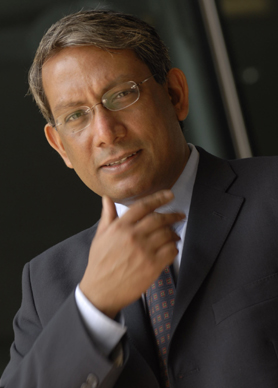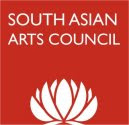Contribute
| Ravi Venkatesan, Former Chairman Of Microsoft And Rana Dasgupta Visit To Boston |
Press release
06/18/2014
The South Asian Arts Council will collaborate with Teamwork Arts on Friday, June 27th to sponsor a literary event, Words on Water in the Eye on India program. Words on Water will feature two of India’s trending writers; Ravi Venkatesan and Rana Dasgupta. Both authors through there literary works discover the fascinating and ever-changing modern India. Rana Dasgupta was born in Canterbury, England in 1971 and studied at Balliol College, Oxford and the University of Wisconsin-Madison. After his studies he worked for an international marketing firm, which took him to London, Kuala Lumpur and then New York. Ravi Venkatesan is the former Chairman of Microsoft India and currently Chairman of Social Venture Partners India, a network of engaged philanthropists addressing social problems through venture philanthropy. He is a Venture Partner at Unitus Seed Fund, a director on the boards of AB Volvo and Infosys Ltd. and Vice Chairman of a successful family business. Venkatesan is the author of a newly released and critically acclaimed book “Conquering the Chaos: Win in India, Win Everywhere†published by Harvard Business Review Press. As Chairman of Microsoft India between 2004 and 2011, Ravi helped build India into Microsoft’s second-largest presence in the world as well as one of its fastest growing markets. Microsoft India was consistently rated one of the country’s most respected companies, amongst the most admired brands, and one of India’s best employers. Ravi was instrumental in creating Microsoft India’s Project Shiksha, a computer literacy program which has so far trained over 35 million school children in India. In 2011, Ravi was voted India’s Most Influential Multinational Company CEO in the annual survey conducted by The Economic Times, India’s leading business newspaper. Prior to joining Microsoft, as the Chairman of the publicly listed Cummins India, Ravi led its transformation into the country’s leading provider of power solutions and automotive engines. He helped establish the Cummins College of Engineering, India’s first engineering college for women, in Pune. Ravi has a BS in engineering from IIT Bombay, an MS from Purdue University, and a MBA from Harvard Business School where he was a Baker Scholar. He is a recipient of the Indian Institute of Technology Bombay’s Distinguished Alumnus Award and Purdue University’s Distinguished Engineering Alumnus Award. He was recently voted as one of India’s best management thinkers by Thinkers50. Ravi Venkatesan shares his views on the future of India with Lokvani. The elections seem to have brought a lot of hope. How do you view the elections? The elections have swept away the gloom and despair that was settling over all Indians as a result of the dismal policies and practices of the last government. For the first time in 30 years there is a government with a clear majority. PM Modi has articulated his philosophies and has won an overwhelming mandate to break radically from the past. This is India’s best opportunity to fundamentally fix a lot of what has ailed our economy and our society. We better not squander this. Do you think there will be a greater presence for foreign companies in India? I think India can be the next China. Global companies are becoming nervous about china. The Chinese economy is slowing, their costs are rising as are geopolitical tensions. So many companies are thinking about how to diversify their risk. If India becomes more welcoming, we could see a flood of investment. For that the new government has to reduce the difficulty of doing business- things like harassment by tax authorities, bureaucratic red tape, faster judicial decisions. These along with better infrastructure, better labour laws and changes to land acquisition can definitely open the flood gates. What should the foreign companies be aware of as they come into India ? Three things. First, they need to have commitment and should take a long term view.India is not for the faint hearted. There will be many ups and downs and challenges. You cant give up when the going gets tough- you have to ride out the rough patches like the last three or four years. Second, to succeed, you have to become more local. You cannot simply replicate your global model with the same global products and pricing and expect to be very successful. Finally, local leadership really matters. You need an entrepreneurial leader, who is senior and trusted by top management, a person of great tenacity who will not give up even if it takes 10 years to build something significant. What areas of opportunities stand out in the area of social entrepreneurship? In a country like india, there are infinite opportunities in social entrepreneurship. We have a fund called Unitus Seed Fund that invests in early stage social enterprises. We see lots of opportunity in healthcare, in education and skills development, in energy and water. But there are major opportunities in every field. What is in short supply is good entrepreneurs more that opportunities. What is the mantra for making the rural areas developed so that India develops as a whole and not just in the Urban areas? The most important thing I think is that we need to care about our people who live in villages. Those of us who live in cities simply don’t care. I would think that building infrastructure is critical- roads, electricity, connectivity. Once people are connected, then lots of things become possible. President Kalam used to talk passionately about PURA- Providing Urban Amenities to Rural Areas- as the key to development. I think he is right. What is your predication for India 5 years from now? I think we have a God given window of opportunity to get back on a path of sustainable growth and development. We better not waste it. This is not simply a job for Prime Minister Modi. Every Indian needs to pitch in. This is truly a moment when we should ask not what the country can do for us but ask instead what we can do for the country. Please join the South Asian Arts Council on Friday, June 27th from 6:30 until 8:30pm for Words on Water at 2 Atlantic Ave. Boston, MA at Lewis Wharf. Tickets are $40 and include a cocktail reception following the main event. To purchase tickets, please go to www.eyeonindia.com. http://www.southasianartscouncil.org/#!eye-on-india/cjvp
In 2001, he moved to Delhi to write. His first novel, Tokyo Cancelled, appeared in 2005 and was shortlisted for the John Llewelyn Rhys Prize. Solo (2009) won the Commonwealth Writers' Prize. His latest book, Capital, is a non-fiction portrait of twenty-first century Delhi
You may also access this article through our web-site http://www.lokvani.com/

